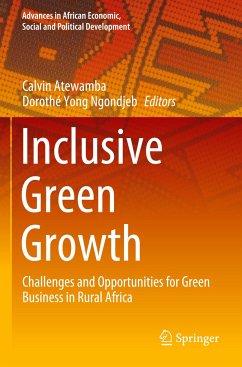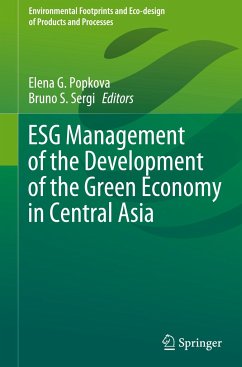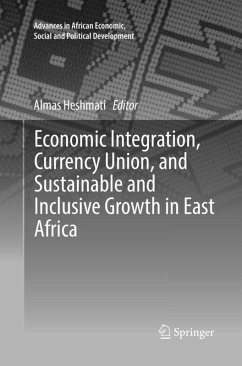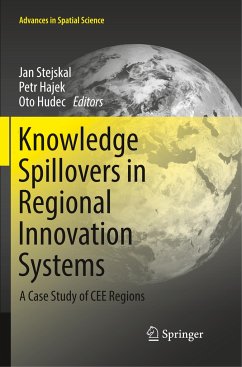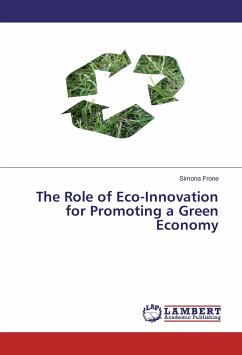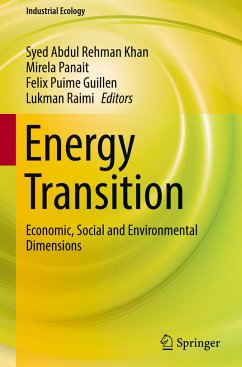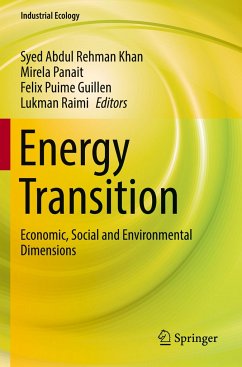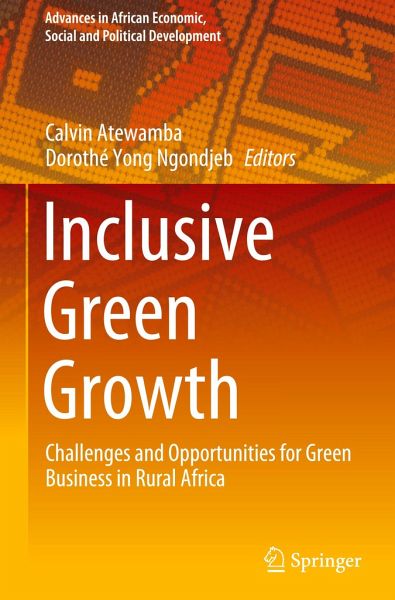
Inclusive Green Growth
Challenges and Opportunities for Green Business in Rural Africa
Herausgegeben: Atewamba, Calvin; Yong Ngondjeb, Dorothé

PAYBACK Punkte
38 °P sammeln!
Fostering inclusive green growth in Africa means addressing existing and emerging development challenges, while efficiently managing Africa's natural capital and building resilience to environmental, social and economic risks. Although this new paradigm for development has the potential to create tremendous business opportunities, there are also challenges. This book provides empirical evidence on the conditions for the emergence of green businesses in Africa. It includes 13 case studies, which identify the determinants of small and medium-size enterprises' engagement in inclusive and sustaina...
Fostering inclusive green growth in Africa means addressing existing and emerging development challenges, while efficiently managing Africa's natural capital and building resilience to environmental, social and economic risks. Although this new paradigm for development has the potential to create tremendous business opportunities, there are also challenges.
This book provides empirical evidence on the conditions for the emergence of green businesses in Africa. It includes 13 case studies, which identify the determinants of small and medium-size enterprises' engagement in inclusive and sustainable growth in rural Africa, and the factors that hinder eco-innovation in business and entrepreneurial activities. Furthermore it discusses appropriate regulations and policies to stimulate the development of green business in Africa. Offering insights into the relationship between eco-innovation, labor productivity and business competitiveness in rural Africa, this book appeals to scholars, policy makers and practitioners interested in a green economy for Africa.
This book provides empirical evidence on the conditions for the emergence of green businesses in Africa. It includes 13 case studies, which identify the determinants of small and medium-size enterprises' engagement in inclusive and sustainable growth in rural Africa, and the factors that hinder eco-innovation in business and entrepreneurial activities. Furthermore it discusses appropriate regulations and policies to stimulate the development of green business in Africa. Offering insights into the relationship between eco-innovation, labor productivity and business competitiveness in rural Africa, this book appeals to scholars, policy makers and practitioners interested in a green economy for Africa.





